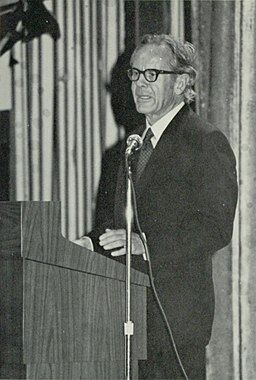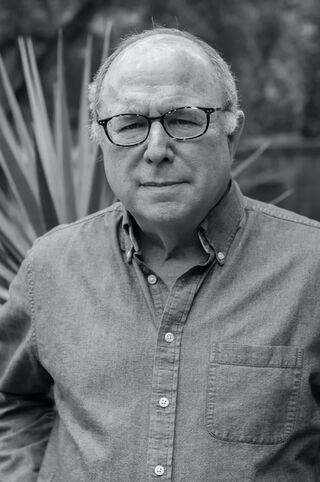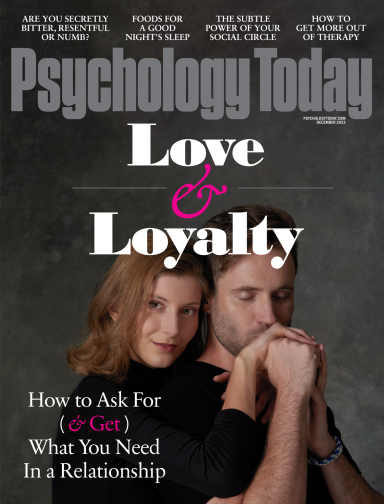Spirituality
Wounded Healer: Rollo May's Psycho-Spiritual Odyssey
Part 6. A conversation with Rollo May biographer Robert Abzug
Posted February 1, 2021 Reviewed by Kaja Perina

This is Part 6 and the final installment of my conversation with historian Robert Abzug, whose authorized biography of celebrated psychologist Dr. Rollo May, Psyche and Soul in America: The Spiritual Odyssey of Rollo May (Oxford University Press) will be released on February 1, 2021. (See Part 1 here, Part 2 here, Part 3 here, Part 4 here, and Part 5 here.) I wish him the best of luck with the book, and hope that PT readers have enjoyed my review and our extended conversation about it.
DIAMOND: The recent Kirkus review of your newly released Rollo May biography, Psyche and Soul in America, rightly described it as "A revelatory book that should sustain May’s reputation and influence for at least another generation." Coincidentally, or perhaps synchronistically, as you note in the book regarding Rollo's immense popularity with readers during the 1960s, 70s, 80s and beyond, "Nothing cemented his place on the emerging cultural horizon like the singular attention he received in Psychology Today." Mary Harrington Hall, the then managing editor who interviewed May in 1967, the debut year for PT, wrote: "For many years, he has been one of psychology's persistent pioneers."
And that was prior to the publication of his brilliant and bestselling books Love and Will (1969), Power and Innocence (1972), The Courage to Create (1976), and several others. Through these penetratingly insightful books, May profoundly influenced the public perception and professional practice of psychotherapy around the world. But with the burgeoning popularity of both cognitive-behavioral therapy (CBT) and psychopharmacology toward the end of the twentieth century, the prominence and appreciation of what I like to call “real psychotherapy” (see my prior post) of the sort May practiced and promoted waned dramatically.
Today, not only does psychotherapy itself suffer from philosophical nihilism and naiveté about the perennial problem of human evil on which Rollo so profoundly reflected, but also from the pervasive polarization, narcissism, materialism, biocentrism, hyperrationalism, reductionism, literalism, concretism, anti-intellectualism, and dehumanization of our postmodern era. Most types of therapy currently practiced fail to acknowledge, address, assimilate, and cultivate what May (1969) called the "daimonic," but instead avoid, deny, and suppress it as much as possible, both psychologically and pharmaceutically.
This is particularly true of the paradoxical daimonic passions of anger or rage. (See, for instance, May, 1969, 1972; Diamond, 1996.) Such negative and suppressive treatment of the daimonic is, in my view, partly responsible for the growing pathological anger, rage, resentment, hostility, aggression, and violence in our increasingly deeply divided and dangerously polarized society. Rollo wrote presciently of this pervasive personal and collective problem in his superb book Power and Innocence: A Search for the Sources of Violence (1972).
At the same time, despite this distressing trend in psychology and psychiatry preceding and especially since May's death, prominent clinicians like Stanford psychiatrist Irvin Yalom, who had been a patient, friend, and colleague, further championed and popularized Rollo's existential therapy in excellent books such as the now classic text Existential Psychotherapy (1980), Love’s Executioner (1988), Staring at the Sun (2009), Creatures of a Day (2015), and others subsequent to May's demise in 1994. Similarly, many of Rollo's former pupils and proteges, myself included, have since published posthumous books, chapters, articles, and blogs keeping the vital substance and spirit of his work alive. Indeed, as if to seemingly collectively compensate for such psychological and spiritual lopsidedness and superficiality in psychotherapy these days, we are recently seeing a resurgence of interest in existential therapy in general--and Rollo May's existential depth psychology in particular-- around the globe, including, for instance, in places like Europe, South America, Japan, and China.
As psychotherapists, "our task," asserted May in The Cry for Myth (1991), near the end of his life, "is not to 'cure' people ... Our task is to be a guide, friend, and interpreter to persons on their journeys through their private hells and purgatories" (p. 165). Sadly, this psycho-spiritual understanding of the true meaning, purpose, and value of psychotherapy is antithetical to most mainstream approaches today. So, finally, as a professional historian, what would you consider Rollo's greatest contribution to the world, and how do you see May's historical role, legacy, and significance as regards the present and future of psychology and psychotherapy?

ABZUG: I hope the Kirkus reviewer is right, and, if so, it will be because of May’s ability to write plainly and compellingly about the quest for self-understanding while reminding the reader of the long history of supporting voices from the past of Western culture, its wisdom, and its guiding myths.
Your point about the influence of May’s ideas as a countervailing force in psychotherapy speaks powerfully as well for Rollo’s impact on laypersons and the culture in general. He had that rare talent of talking to both professionals and laypersons in clear and compelling ways. He continues to gather a growing and enthusiastic readership across generations, genders, and geography through online commentary and through the whole body of his work, which has become easily available from online bookstores. While writing Psyche and Soul in America, I was in conversation and correspondence with men and women across the globe who told me about their own powerful connections to May’s work, ones sparked by hearing him lecture or reading his books in English or in translation.
However, Rollo May’s legacy for the present and future of psychology and psychotherapy raises complex questions about the history and evolution of these fields. His influence as recounted in general historical accounts of psychology is often invisible. Sometimes his name is simply lumped together with three or four other humanistic psychologists. Though mostly ignored, collectively their ideas--for example, presence, encounter, active listening, collaboratively working in the here-and-now, stressing freedom and responsibility, searching for meaning, the emphasis on the importance of the therapeutic relationship--have nonetheless become stock-in-trade for many contemporary counselors and psychotherapists.
Yet, when these schools of therapy are mentioned academically, May as a distinct figure recedes into the background because unlike his contemporaries Abraham Maslow and Carl Rogers, for instance, Rollo didn’t regularly work within the structure of an academic environment that honored experimental research and explicit theories and methods (though he did teach at several top-notch schools including Yale, Princeton, and Harvard University). Nonetheless, his trailblazing contributions to the understanding of anxiety, depression, violence, evil, spirituality, existential philosophy and psychology, and the nature of creativity clearly helped to spur a focus on these previously neglected and misunderstood areas in the fields of clinical psychology and psychiatry, with a momentum that continues to this day.
I have often thought about what May offered his public. For one thing, he was what I would call a conservative modernist. His works lent historical breadth and reminders of traditional human virtues in a world where the technological innovations of big data, robotics, and artificial intelligence more and more have taken center stage—yet his was not a plea to turn back the clock. May appeals to those betwixt and between identities, whether of nationality, gender, or cultural aspiration, as well as to people who feel oppressed, alienated, and marginalized by modern society.
He underscores the potential inner resources of individuals in shaping their own authentic existences, no matter the fateful familial or cultural forces that attempt to define them. Love, courage, autonomy, integrity, freedom, responsibility, creativity--reading Rollo May's work today reminds us that these endangered values are perhaps even more important today to the crafting of a meaningful and fulfilling life as they were during May's own lifetime and for millennia past.
References
Abzug, R. (2021). Psyche and soul in America: The spiritual odyssey of Rollo May. New York: Oxford University Press.
May, R. (1991). The cry for myth. New York: Norton.




